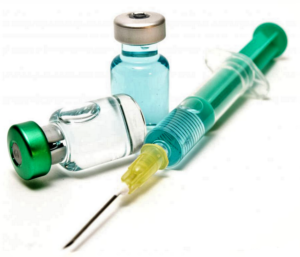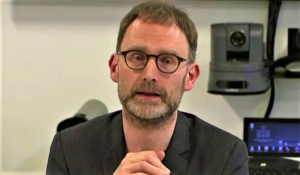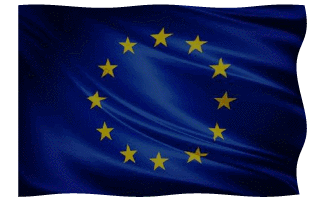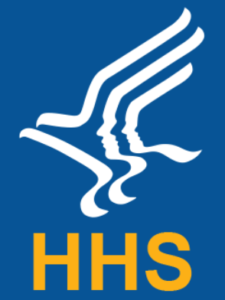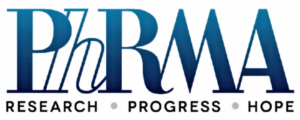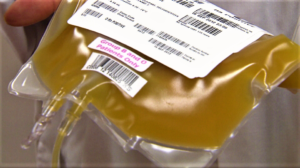- Experts Examine the Many Factors of Pharmacist Burnout (drugtopics.com)
Professional burnout among pharmacists, already a growing concern in the United States, could be exacerbated by the coronavirus disease 2019 crisis. The current pandemic strains pharmacy capacity and exposes persistent underlying problems, according to 3 experts on pharmacy burnout...A national survey of more than 4700 pharmacist concluded that, although more than half (54.2%) of respondents reported meaningful work, 32% and 33% also said they felt “a lot” or “totally” emotionally and physically exhausted. Community pharmacists demonstrated higher rates of work exhaustion and interpersonal disengagement, as well as lower levels of professional fulfillment, compared with those practicing in hospitals and other work settings...READ MORE
- Flu shot makers gear up—and get creative—for a critical vaccination season (fiercepharma.com)
With the novel coronavirus continuing its global spread and a second wave threatening the United States later this year, experts worry an influx of influenza patients and COVID-19 patients will hit U.S. hospitals at the same time...pharma's working to ramp up not only for the increased demand but also for the logistical challenges of vaccinating millions of people during a pandemic...Manufacturers distributed about 170 million flu vaccine doses to the U.S. last year. This year, they're aiming to increase that by about 20 million...Vaccine makers are already producing their doses, with plans to start shipping later this summer...READ MORE
- ‘Professor Lockdown’ Modeler Resigns in Disgrace (nationalreview.com)
Neil Ferguson is the British academic who created the infamous Imperial College model that warned Boris Johnson that, without an immediate lockdown, the coronavirus would cause 500,000 deaths and swamp the National Health Service...Johnson’s government promptly abandoned its Sweden-like “social distancing” approach, and Ferguson’s model also influenced the U.S. to make lockdown moves with its shocking prediction of over two million Americans dead...Johan Giesecke, the former chief scientist for the European Center for Disease Control and Prevention, has called Ferguson’s model “the most influential scientific paper” in memory. He also says it was, sadly, “one of the most wrong.”...Ferguson has been wrong so often that some of his fellow modelers call him “The Master of Disaster.”...READ MORE
- Europe mulls BARDA-style development contracts for COVID-19 vaccines: Bloomberg (fiercepharma.com)
Not wanting to be left behind in the COVID-19 vaccine race, Europe is stepping up its efforts to secure supplies should any immunizations prove safe and effective. Right on the heels of news that the U.S. has picked vaccine finalists to fast-track, Europe is considering negotiations with pharmaceutical companies for early acces..The European Union has asked member countries for the power to negotiate development and access deals with drugmakers.. if the mandate were approved, Europe would base its program on the U.S.’ Biomedical Advanced Research and Development Authority...READ MORE
- HHS to distribute $25B for Medicaid, safety-net providers (medcitynews.com)
The Department of Health and Human Services will dole out another $25 billion in funding targeted at healthcare providers that primarily serve Medicaid and low-income patients...The agency will distribute $15 billion to providers that participate in Medicaid and CHIP programs, and another $10 billion to safety-net hospitals...The funds are intended to help hundreds of thousands Medicaid providers that did not receive funding through the general distribution that went out to providers in April and May...Safety-net hospitals, which provide a significant proportion of care to uninsured and low-income patients, will be able to receive between $5 million and $50 million. HHS said it plans to distribute the funds to hospitals this week...READ MORE
- As U.S. calls for stateside manufacturing, antibiotic maker Paratek gambles on ‘onshoring’ effort (fiercepharma.com)
...the U.S. government has shelled out big money for a stable and reliable supply of key drugs made on U.S. soil. For drugmakers accustomed to offshore manufacturing in cheaper countries, does it make any sense to onshore production to meet U.S. demand?...One company has a compelling argument, and it's taking big risks—and government funding—to test its hypothesis...Paratek Pharmaceuticals, maker of antibiotic Nuzyra, is kick-starting a three-year plan to build a government-funded, second supply chain in the U.S. in an effort to flesh out the nation's strategic supply of pandemic response drugs...The U.S. government, through its Biomedical Advanced Research and Development Authority, has dumped more than $300 million combined into helping Paratek build the U.S. supply line, which will stand apart from its current manufacturing network in Europe...READ MORE
- The latest: What they are saying: Intellectual property protections critical as we work to defeat COVID-19 (catalyst.phrma.org)
The U.S. biopharmaceutical industry depends on reliable intellectual property protections to promote the development of new treatments and cures for patients. Strong IP protections are especially important as innovators work around the clock making substantial investments at risk to develop solutions to help prevent infection and treat those with COVID-19...many of the existing medicines and investigational medicines in clinical trials for COVID-19 exist today because of IP and other incentives that drove their initial research...Strong and reliable IP protections support America’s robust innovation ecosystem by promoting innovation and affordability for patients who rely on new treatments and cures...READ MORE
- America’s global leadership in biopharmaceutical manufacturing (catalyst.phrma.org)
Unfortunately, there are a lot of assertions floating around that tell a misleading story about pharmaceutical manufacturing, diminishing America’s leadership and suggesting our reliance on other countries has put us at risk of potential shortages. In reality...the biopharmaceutical industry supports more than 4 million jobs across the United States, directly employing more than 811,000 Americans. Of those jobs, nearly 120,000 are high-wage manufacturing jobs, which is double the percentage of manufacturing jobs compared to the private sector overall...Discussions about enabling more manufacturing in the United States are important, but let’s not forget that the United States already sustains a substantial manufacturing presence that is part of a larger global network. We cannot replace all global manufacturing with solely U.S. manufacturing without upsetting the entire biopharmaceutical supply chain to the detriment of patients...READ MORE
- Europe wants to make its own drugs, but it needs American blood plasma (reuters.com)
Europe wants to be master of its own destiny in producing essential drugs and finding COVID-19 treatments, but it’s got a problem. It relies on the United States for a critical ingredient: blood plasma...As global mistrust deepens, European Union officials are casting around for ways to reduce the bloc’s dependence on American plasma...now widely applied in COVID-19 experimental therapies...The coronavirus crisis should push authorities to overhaul Europe’s blood donation system...The United States’ steadier plasma supplies are partly due to its system of paying people to donate blood used to develop medicines. In most European countries, donations are unpaid because of safety and ethical reasons...The PPTA (Plasma Protein Therapeutics Association ) drugmakers body sees a strategy based on unpaid blood donations as counterproductive. It pointed to Germany, the largest collector of plasma in Europe, as one of the few countries that compensate blood donors...READ MORE
- Amid a pandemic, Atlas becomes latest venture firm to raise cash for drug startups (biopharmadive.com)
The coronavirus pandemic hasn't deterred investors of Atlas Venture, a biotechnology-focused venture capital firm. On Friday, Atlas announced its latest fund, which opened at the end of March, had closed with a higher-than-expected yield of $400 million...Atlas initially wanted to bring in $350 million from the fund...But when the firm went out to fundraise, it was met with more than $1 billion in demand, which then pushed the fund toward a cap of $400 million...the fresh money will be put into about 15 companies, and that his firm remains interested in areas such as targeted cancer drugs, gene therapy and the central nervous system...The pandemic's impact on biotech stocks was fleeting compared to the larger market. Venture-backed drug companies have also continued to go public, which has kept firms and their investors optimistic about their ability to earn returns...While there are enormous parts of the broader economy...that have been really adversely affected by the COVID-related lockdowns, biotech is doing very well...The fund flows are very strong by any measure...READ MORE


